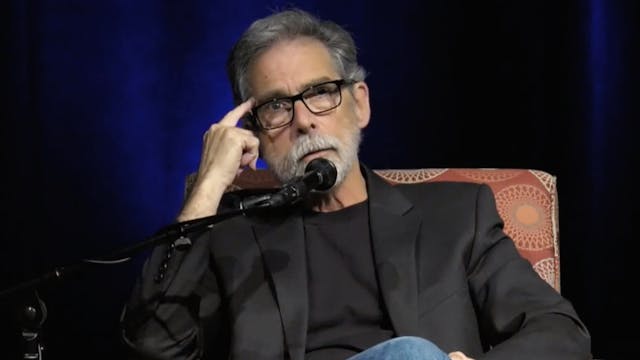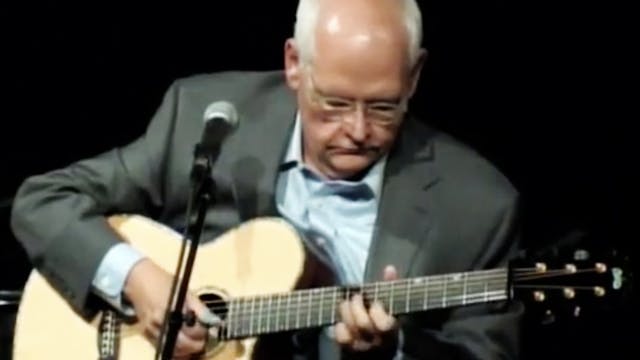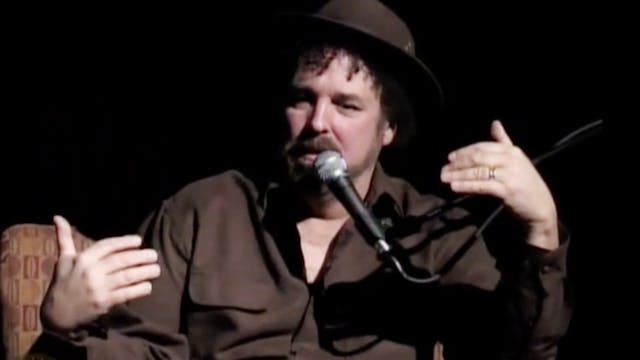Ray Edenton • Nashville Cats, 2007
Nashville Cats
•
1h 36m
Ray Edenton—part of the small group of revered session musicians known as the Nashville A-Team, and one of the most recorded guitarists in American history—describes his career recording with artists such as the Everly Brothers, Marty Robbins, and many others during this October 6, 2007, program, part of the Country Music Hall of Fame and Museum’s Nashville Cats series.
Early in the program, Edenton talks with host Bill Lloyd about growing up near Mineral, Virginia, in a family brimming with musical talent, and playing square dances as a teenager before joining the Army. After his service ended, Edenton says, he formed a Western trio before joining Joe Maphis’s band at the “Old Dominion Barn Dance” in 1948. A year later he relocated to Knoxville, Tennessee, for work at the “Mid-Day Merry Go Round,” where he befriended Chet Atkins.
Edenton recalls spending twenty-eight months in a Veterans Administration hospital with a case of tuberculosis. Following his recovery, he traveled to Nashville with Bill Railey, who had been his roommate in the hospital. While in town, Edenton bumped into a friend who recommended him for a job playing lead guitar in Jamup & Honey. The job guided him toward a career in country music.
After playing on Red Foley and Kitty Wells’s 1954 hit “One by One,” Edenton suddenly found himself in demand as a session guitarist. He speaks about his appearances on WSM-AM and WSIX-TV, his recording sessions with Marty Robbins, and his unique tuning that helped define the Everly Brothers’ sound. He also mentions how he pitched a song he co-wrote, “You’re Running Wild,” to the Louvin Brothers. By 1961, he dedicated himself fully to studio work.
Audio clips are played for the audience to convey the breadth of Ray Edenton’s career, recording with artists ranging from Cowboy Copas to Leon Russell.
Remembering his place on the A Team, Edenton, who retired in 1991, tells Lloyd, “Everybody in the world came here and we recorded with all of them. You might do a pop session in the morning, and bluegrass in the afternoon, and rock & roll at night. People often ask me about session musicians and why, back in those days, only a few people made all the records. It was several things. You had to learn real quick. You had to adapt real quick. And if you couldn’t do that, you couldn’t do sessions.”
FOR MORE
Explore the Museum’s public programming: https://countrymusichalloffame.org/plan-your-visit/exhibits-activities/public-programs/
FOLLOW THE MUSEUM
Instagram: https://www.instagram.com/OfficialCMHOF/
Facebook: https://www.facebook.com/countrymusichof/
Twitter: https://twitter.com/countrymusichof
Up Next in Nashville Cats
-
Richard Bennett • Nashville Cats, 2016
Richard Bennett recaps his long career as a studio guitarist and producer—from his teenage years in Los Angeles playing on an array of sessions, to his work in Nashville with Steve Earle, Emmylou Harris, and others—during this July 30, 2016, program, part of the Country Music Hall of Fame and Mus...
-
Steve Gibson • Nashville Cats, 2014
Steve Gibson—an accomplished studio session guitarist who, by his estimation, has contributed to more than 14,000 songs—discusses his Midwestern roots and Nashville’s 1970s creative community during this hour-plus program, held on June 28, 2014, as part of the Country Music Hall of Fame and Museu...
-
Eddie Bayers • Nashville Cats, 2010
Eddie Bayers—whose studio credits include classic hits by Rodney Crowell, The Judds, and George Strait—describes close calls and setbacks that he endured prior to becoming one of Nashville’s most prominent drummers.
Held on February 13, 2010, the program is part of the Country Music Hall of Fame...



